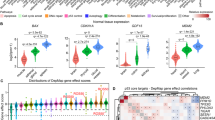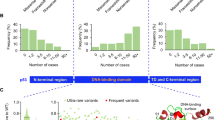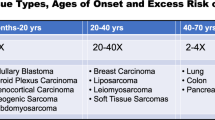Abstract
Cancer is a disorder with various genetic and epigenetic alterations. Genetic alterations such as mutations, i.e., substitutions, amplifications, and deletions of nucleotide sequences, are largely irreversible, whereas epigenetic alterations can be modified by pharmacological agents that target components of the epigenetic machinery. Recent studies have showed that introduction of defined factors such as those encoded by c-MYC, SOX2, OCT3/4, and KLF4 in normal somatic cells results in their dedifferentiation into induced pluripotent stem (iPS) cells. In addition, we have reported that these iPS factors induce the development of induced multipotent cancer (iPC) cells from gastrointestinal cancer cells by reducing tumor aggressiveness. The efficiency of iPS reprogramming increased when p53 was inhibited. The study of cancer cells suggests that the p53 pathways might be involved in the aggressive phenotypes of iPC cells in a long-term culture. However, the roles of gain-of-function oncogenic mutations in TP53, which is a key tumor suppressor gene, remain to be elucidated. We investigated reprogramming efficiency of iPS generation in human diploid fibroblasts that were co-transfected with TP53 mutants and defined factors. The results suggest that mutations in those TP53 regions that are involved in DNA contact might play a critical role in the efficiency of iPS generation. Taken together, our studies suggest 2 roles of TP53 mutations in reprogramming: (1) the structural mutations might contribute to, or collaborate with, other mutations to regulate the maintenance of genomic stability; (2) the DNA-contact mutations could affect the downstream target genes, which may be distinct from those involved in wild-type p53 function. These molecular manipulations of tumorigenicity and enhancement of cellular reprogramming efficiency by the p53 pathway will open an attractive and useful avenue for future medicine.
Similar content being viewed by others
Article PDF
Author information
Authors and Affiliations
Corresponding author
Rights and permissions
About this article
Cite this article
Moon, J., Ishii, H., Dewi, D. et al. Gain-of-function oncogenic mutations in TP53 enhance defined factor-mediated cellular reprogramming. Nat Prec (2011). https://doi.org/10.1038/npre.2011.5681.1
Received:
Accepted:
Published:
DOI: https://doi.org/10.1038/npre.2011.5681.1



